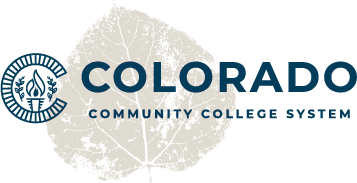State Board | Policies and Procedures
SP 8-80a – Surplus Property
COLORADO COMMUNITY COLLEGE SYSTEM
SYSTEM PROCEDURE
Surplus Property
SP 8-80a
APPROVED: April 23, 2012
EFFECTIVE: April 23, 2012
RENUMBERED: August 25, 2016
RENUMBERED: November 29, 2016
REVISED: February 14, 2024
RENUMBERED: February 14, 2024
REFERENCES: Board Policy (BP) 8-80, Surplus Property
APPROVED:
/ Joseph A. Garcia /
Joseph A. Garcia, Chancellor
Application
This procedure applies to the Colorado Community College System, including its Colleges (CCCS or System).
This procedure applies to equipment that is movable and not permanently attached to a building. It excludes land, land improvements, leasehold improvements, buildings, and fixtures. All management and disposal of property shall be in accordance with the requirements outlined in this procedure.
Basis
It is the responsibility of the System Office and each College to ensure that all property is properly accounted for when acquired, whether by purchase or other means. Property shall be inventoried, tracked, and safeguarded throughout its useful life and at the time of disposal.
The System Office and Colleges are responsible for establishing adequate written procedures to perform their fiduciary duty. The procedures for surplus property must include, at minimum, the requirements outlined in this procedure.
Definitions
“Capital Equipment”: Non-consumable, tangible equipment having a useful life of more than one (1) year and a value at acquisition of $5,000 or more. This includes equipment acquired through transfer, donation, capital lease, internal construction, and components wherein parts may not meet the capitalization threshold but, in aggregate, the cost is $5,000 or greater.
“Information Technology (IT) Equipment”: Includes, but is not limited to, computers, servers, computer peripherals, software, and electronic storage devices.
“Non-Capital Equipment”: Tangible, non-consumable materials or equipment that are valued at less than $5,000 at acquisition or have a useful life of less than one (1) year.
“Surplus Property”: Any tangible supplies, materials, or equipment for which CCCS has acquired ownership by means of purchase, donation, dedication, transfer, abandonment, exchange, or any other lawful means, which is no longer needed by the using department.
“Surplus Property Manager”: An employee charged with the responsibility of tracking surplus property, obtaining valuation, determining an appropriate disposal method, and ensuring appropriate documentation occurs. The Surplus Property Manager shall safeguard surplus property until disposal is complete. The System Office or College may designate more than one Surplus Property Manager to oversee specific department(s) and/or property.
Procedure
Surplus property procedures shall address disposal of all categories of equipment including, but not limited to, IT equipment, property acquired through certificates of participation, restricted gifts, equipment exposed to or containing hazardous materials, capital equipment, and non-capital equipment. Procedures should specifically address equipment purchased with federal funds.
The written procedures shall contain the following components:
- Provide for designation of Surplus Property Manager(s);
- Approval of disposition;
- Valuation of assets at disposition;
- Tracking of assets between locations (relocation) and recordkeeping once disposed of;
- Transfers between departments;
- Acceptable methods of disposal based on funding source and residual value; and
- Mechanism for reporting disposal (e.g., disposal form) to the Business Officer or designee in a timely manner.
Valuation of Equipment:
The appropriate Surplus Property Manager should determine and document the residual value of the item and the appropriate disposal method. The valuation should reflect the historical experience with the equipment. Procedures may include valuation of equipment by type. Any item that is determined to be of no value or obsolete, must be approved for disposal through the Surplus Property Manager.
The value of equipment should be determined by the current market value of like items of like age. Viable valuation tools can include online auctions or similar forums if the items are sold through more focused venues. If the valuation is highly subjective, more than one source may be required to determine residual value.
Hazardous or Sensitive Property:
If the item contains hazardous materials or contains sensitive or restricted data, appropriate steps should be taken by the Surplus Property Manager to ensure the items are disposed of properly and safely, and that any data is removed in such a way that it cannot be restored. All items that have been exposed to or contain hazardous materials should be disposed of according to applicable regulations.
General Disposal Methods:
All disposal of surplus property must be in accordance with laws, regulations, and applicable Board Policies and System Procedures. Acceptable means of disposal include:
- Relocate within CCCS;
- Transfer to another department;
- Use as a trade-in;
- Transfer to a public entity that operates a program for which the equipment was originally purchased;
- Resale through appropriate channels as determined and carried out by Surplus Property Managers, including:
- Public or silent auction;
- Vehicle sales through State Fleet;
- Discard through trash removal.
The existing net book value should be used for items that are relocated or transferred within CCCS, such that no gain or loss is recognized. All equipment being disposed of, regardless of historical cost or residual value, requires approval and the completion of a disposal form.
Vehicle Disposal:
Vehicles will be disposed of in accordance with the following guidelines:
State Fleet vehicles: Return to State Fleet.
Passenger vehicles and trucks: If inoperable, sell for scrap. If operable, use as a trade-in, or sell through an auction, which may be an online auction forum.
Donated vehicles: Dispose of in accordance with the donor agreement or, if unspecified, in accordance with the appropriate vehicle category.
Small utility vehicles: If inoperable, sell for scrap. If operable, use as a trade-in, sell through an auction, which may be an online auction forum.
Specialized maintenance equipment (including, but not limited to, tractors, mowers, generators, sweepers, and equipment used to maintain the facilities and grounds): If inoperable, sell for scrap. If operable, use as a trade-in, sell through an auction, which may be an online auction forum.
CCCS considers all specialized maintenance equipment with a historical cost of $10,000 or less to have zero residual value after ten (10) years of service.
CCCS considers all vehicles with a historical cost of $20,000 or less to have zero residual value after ten (10) years of service.
Limitations on Sales of Surplus Property:
All sales of surplus property must be made available through a public bidding process and advertised accordingly. Transferring or donating items to private entities or individuals without consideration is specifically prohibited by statute.
Equipment cannot be purchased by CCCS employees or their families unless they participate through a public auction. CCCS employees who facilitate such events cannot participate in bidding, nor can their families.
Additional Guidance on Surplus Property Types:
CCCS considers all computers and laptops with a historical cost of $5,000 or less to have zero residual value after seven (7) years of service, due to obsolescence in the IT field.
CCCS considers all peripherals with a historical cost of $10,000 or less to have zero residual value after ten (10) years of service, due to obsolescence in the IT field.
CCCS considers all furniture with a historical cost of $10,000 or less to have zero residual value after fifteen (15) years of service.
Recordkeeping:
Records of disposal must be retained for at least three (3) years after the disposal.
Revising this Procedure
CCCS reserves the right to change any provision or requirement of this procedure at any time and the change shall become effective immediately.


